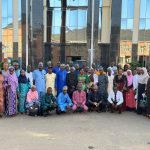Abduction of School Children and the Urgent Need to Revive Nigeria’s Abandoned Safe Schools Initiative
By Bala Salihu Dawakin Kudu (08060017934)
The repeated abduction of school children in Nigeria has become one of the most tragic and embarrassing realities facing our nation today. Each time these horrors occur, the response from government and security agencies raises serious questions about our national capacity to protect our most vulnerable citizens—our children.
From Chibok in 2014, to Dapchi in 2018, to Kankara in 2020, Jangebe in 2021, Kuriga in 2024, and the more recent attacks in Kebbi and Niger States in November 2025, the pattern remains unchanged: armed groups—often no more than a few dozen to a few hundred—brazenly invade schools, abduct pupils, and vanish through forests and villages without any meaningful resistance. How can a nation with the largest army in West Africa, multiple security agencies, intelligence platforms, drones, and an entire ministry responsible for internal security, fail repeatedly to rescue children from small groups of bandits? It is a national shame.
After the world-shaking abduction of the Chibok schoolgirls in April 2014, the Federal Government launched the Safe Schools Initiative. The program was designed to:
1. Strengthen school security
2. Build community security groups
3. Train school safety officers
4. Provide police and guards for schools
5. Offer psychosocial and counseling services
6. Improve early warning and emergency response systems
The initiative received both local and international support. It was widely hailed as a strategic approach to ending school attacks, especially in the North east.
However, over the years, the initiative gradually lost funding, lost government attention, and eventually collapsed. As political priorities shifted, the program was abandoned, leaving thousands of schools exposed to attacks.
Today, the consequences of that abandonment are painfully visible.
1. Tragic Examples That Prove the Urgency
2. The abductions in Nigeria have become almost routine:
3. Chibok (Borno, 2014): 276 schoolgirls kidnapped; over 90 still missing.
4. Dapchi (Yobe, 2018): 110 girls abducted; 5 died, and Leah Sharibu remains captive.
5. Kankara (Katsina, 2020): Over 300 boys abducted in one night.
6. Jangebe (Zamfara, 2021): 279 schoolgirls taken.
7. Kuriga (Kaduna, March 2024): 287 pupils abducted at once.
8. Maga, Kebbi State (Nov 16, 2025): Government Girls Comprehensive Secondary School attacked, several students taken.
9. Niger State (Nov 2025): Another school attack occurred just days later.
These are only a few among dozens of similar tragedies. Each time, government officials issue statements, security chiefs visit the scene, and committees are formed. Yet the kidnappings continue.
Where Are Nigeria’s Security Response Teams?
Nigeria has:
1. The Nigerian Army
2. The Nigerian Air Force
3. The Nigerian Police
4. The DSS
5. The Civil Defence
6. The NIA
7. State security outfits
8. Local vigilantes
Despite this wide structure, less than 200 armed bandits repeatedly overpower rural communities, move freely with abducted children, and operate for days or even weeks without interception. This raises troubling questions:
1. Where are our surveillance drones?
2. Where is the intelligence network?
3. Why are ransom negotiations left to communities rather than the state?
4. Why are abductors not tracked, pursued, or prosecuted?
The inability of the government to respond swiftly to these crimes is eroding public trust and damaging Nigeria’s global reputation.
The collapse of the Safe Schools Initiative has resulted in:
1. Schools becoming soft targets for terrorists and bandits
2. Increased abductions, trauma, and death among children
3. Parents withdrawing children from school—especially girls
4. Decline in education across Northern Nigeria
5. Loss of trust in government protection
6. Stunted economic and social development
In many communities today, education is becoming a luxury—a dangerous activity rather than a fundamental right.
What Must Be Done Now: A Blueprint for Revival
To protect Nigerian children and restore hope, the Federal Government must urgently revive and strengthen the Safe Schools Initiative with the following steps:
1. Provide Adequate and Ring-Fenced Funding:
Funds must be secured, audited, and used strictly for school protection—not political projects.
2. Deploy and Equip Security Forces for School Protection;
Armed personnel, perimeter fencing, alarm systems, and rapid-response units must be stationed close to vulnerable schools.
3. Use Technology for Surveillance and Monitoring
Drones, CCTV cameras, GPS tracking, early warning systems, and real-time communication tools should be deployed.
4. Strengthen Community Participation:
Communities must be part of intelligence gathering, early warning, and school monitoring systems.
5. Work With NGOs and International Partners;
Collaboration can supply additional resources, training, and best practices used globally.
6. Develop Clear Rescue Protocols;
Children should not remain in captivity for months or years. Rescue techniques must be improved, not improvised.
7. Support Survivors and Families;
Abducted children need psychosocial care, educational support, and community reintegration programs.
8. Ensure Accountability and Justice; Bandits, collaborators, financiers, and negligent officials must face strict consequences.
If the Government Cannot Rescue These Children, It Must Not Abandon Them
Negotiation, though controversial, has been used repeatedly in Nigeria’s history—sometimes successfully. If rescue operations fail or are not feasible, government must explore every legitimate option to ensure the safe return of abducted children.
No parent should bury a child because they dared to pursue an education.
No child should suffer trauma because their country failed them.
And no nation prospers when its schools are under attack.
Conclusion:
Let Us Bring Back Our Children, Bring Back Our Schools, and Bring Back Our Humanity
The future of Nigeria lies in the hands of its children. When those children are stolen, traumatized, or prevented from going to school, the future of the nation is stolen as well.
Reviving the Safe Schools Initiative is not just a policy decision—it is a moral duty, a national responsibility, and an urgent necessity.
Let us come together—government, security agencies, communities, NGOs, and citizens—to ensure that never again will armed criminals walk into a school and walk out freely with our children.
Let us act now. Let us bring back our children. And let us protect every school in Nigeria.
By Bala Salihu Dawakin Kudu
(08060017934)












